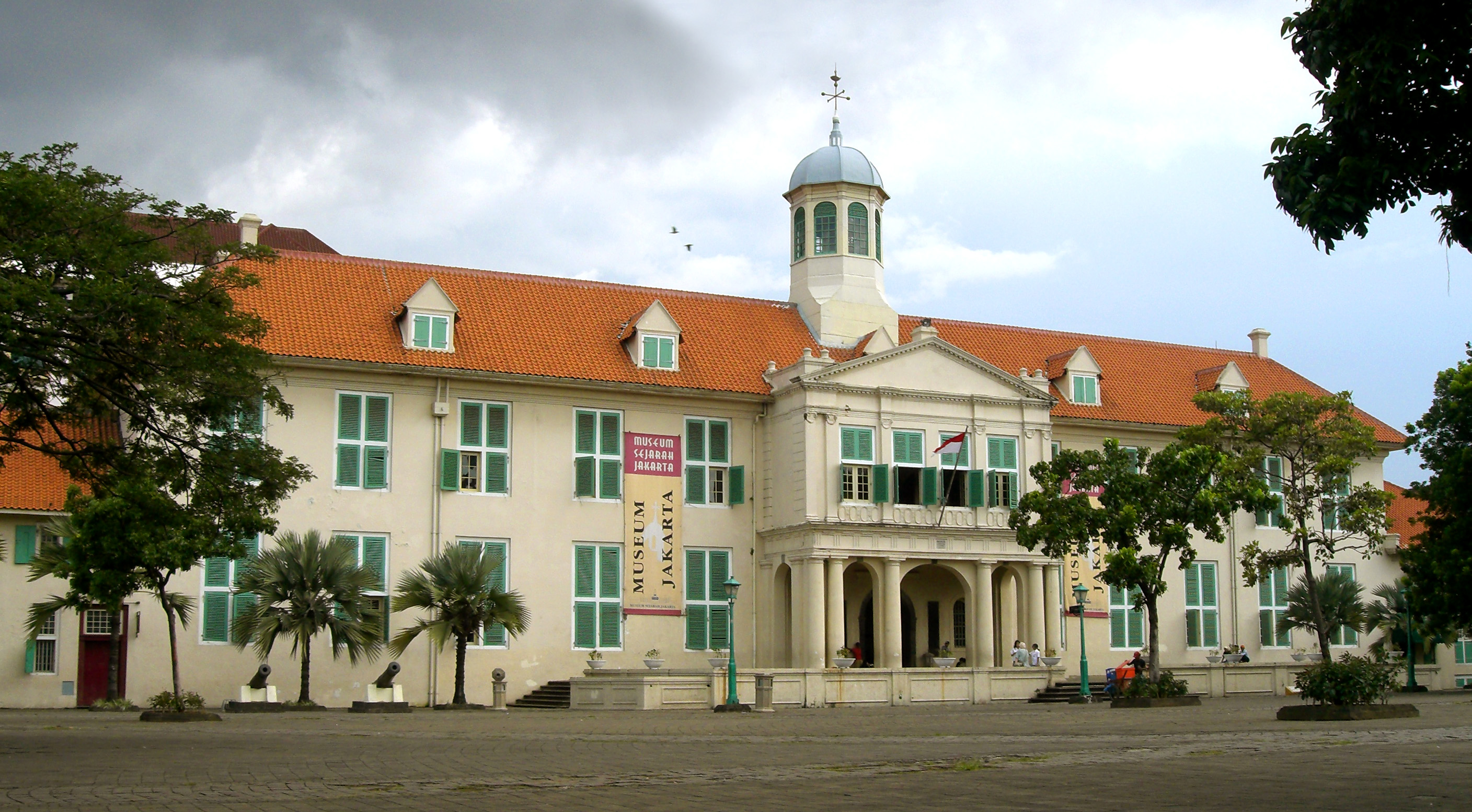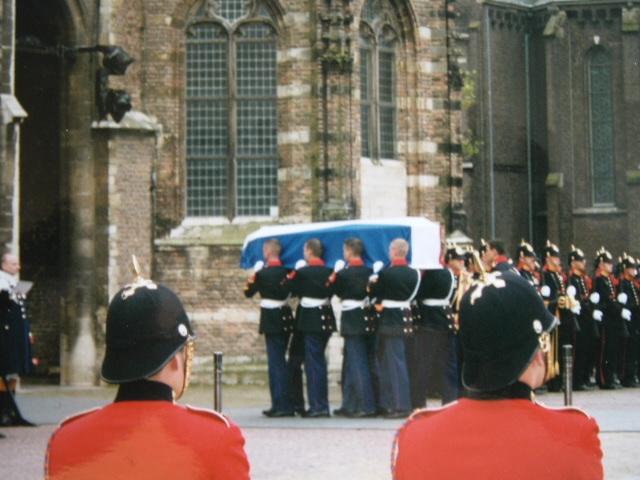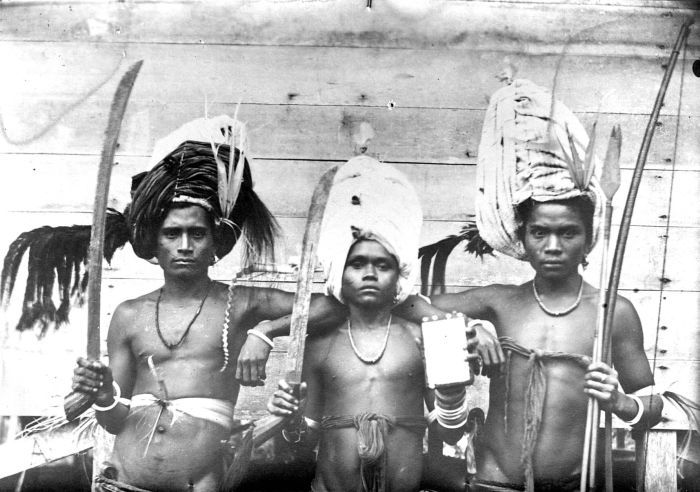|
Indonesia–Netherlands Relations
Indonesia and the Netherlands established diplomatic relations in 1949. Both countries share a special relationship, embedded in their shared history of colonial interactions for centuries. It began during the spice trade as the Netherlands established the Dutch East Indies Company (VOC) trading post in what is now Indonesia, before colonising it as the Dutch East Indies until the mid 20th century. Indonesia was the largest former Dutch colony. In the early 21st century, the Dutch government has committed to boosting its relationship with Indonesia, noting that economic, political, and interpersonal contacts should be further strengthened. History In 1603, the VOC commenced operations in what is now Indonesia where it fought wars to expand its domain.Ricklefs, p.29 Though Indonesian history featured other European colonial powers, it was the Dutch who solidified their hold on the archipelago. After VOC's bankruptcy in 1800, the Netherlands took control of the archipelago in 1826 ... [...More Info...] [...Related Items...] OR: [Wikipedia] [Google] [Baidu] |
Indonesia
Indonesia, officially the Republic of Indonesia, is a country in Southeast Asia and Oceania between the Indian and Pacific oceans. It consists of over 17,000 islands, including Sumatra, Java, Sulawesi, and parts of Borneo and New Guinea. Indonesia is the world's largest archipelagic state and the 14th-largest country by area, at . With over 275 million people, Indonesia is the world's fourth-most populous country and the most populous Muslim-majority country. Java, the world's most populous island, is home to more than half of the country's population. Indonesia is a presidential republic with an elected legislature. It has 38 provinces, of which nine have special status. The country's capital, Jakarta, is the world's second-most populous urban area. Indonesia shares land borders with Papua New Guinea, East Timor, and the eastern part of Malaysia, as well as maritime borders with Singapore, Vietnam, Thailand, the Philippines, Australia, Palau, and India ... [...More Info...] [...Related Items...] OR: [Wikipedia] [Google] [Baidu] |
Prince Claus
Prince Claus of the Netherlands, Jonkheer van Amsberg (born Klaus-Georg Wilhelm Otto Friedrich Gerd von Amsberg; 6 September 1926 – 6 October 2002) was Prince consort of the Netherlands from 30 April 1980 until his death in 2002 as the husband of Queen Beatrix. Biography Klaus-Georg Wilhelm Otto Friedrich Gerd von Amsberg was born on his family's estate, Castle Dötzingen, Hitzacker, Germany, on 6 September 1926. His parents were Claus Felix von Amsberg and Baroness Gösta von dem Bussche-Haddenhausen. His father, by birth member of House of Amsberg which belonged to the untitled German nobility, operated a large farm in Tanganyika (formerly German East Africa) from 1928 until World War II. From 1938, Claus and his six sisters grew up on their maternal grandparents' estate in Lower Saxony; he attended the Friderico-Francisceum-Gymnasium in Bad Doberan from 1933 to 1936 and a boarding school in Tanganyika from 1936 to 1938. Claus was a member of such Nazi youth organisations ... [...More Info...] [...Related Items...] OR: [Wikipedia] [Google] [Baidu] |
Jan Pronk
Johannes Pieter "Jan" Pronk Jr. (; born 16 March 1940) is a retired Dutch politician and diplomat of the Labour Party (PvdA) and activist. Pronk studied Economics at the Rotterdam School of Economics obtaining a Master of Economics degree and worked as a researcher at his alma mater and the Economics Institute from July 1960 until May 1971 and was also was active as a political activist in the New Left movement. After the election of 1971 Pronk was elected as a Member of the House of Representatives on 11 May 1971 and served as a frontbencher and spokesperson for Development Cooperation. Pronk was also selected as a Member of the European Parliament on 13 March 1973 and dual served in both positions. After the election of 1972 Pronk was appointed as Minister for Development Cooperation in the Cabinet Den Uyl taking office on 11 May 1973. The Cabinet Den Uyl fell on 22 March 1977 just before the end of its term. After the election of 1977 Pronk returned as a Member of the ... [...More Info...] [...Related Items...] OR: [Wikipedia] [Google] [Baidu] |
Inter-Governmental Group On Indonesia
The Inter-Governmental Group on Indonesia (IGGI) was established in 1967 as an international consortium of official donors to coordinate the provision of foreign assistance to Indonesia. IGGI was the lead official grouping of donors to Indonesia from 1967 until early 1992 when it was abolished and replaced by the Consultative Group on Indonesia (CGI). For the 25 years up to 1992, IGGI was a key regional institution in Southeast Asia. It helped provide strong international support for Indonesia's economic recovery after the economic difficulties in Indonesia during the period of the Sukarno presidency in 1950s and 1960s. Establishment of IGGI The establishment of IGGI followed the convening of several international meetings in late 1966 and early 1967 between creditor countries and Indonesia. At the time, Indonesia had large international debts outstanding. It was recognised by the international community that a rescheduling of debt payments would be needed as part of an agreed pr ... [...More Info...] [...Related Items...] OR: [Wikipedia] [Google] [Baidu] |
Association Of Southeast Asian Nations
ASEAN ( , ), officially the Association of Southeast Asian Nations, is a political and economic union of 10 member states in Southeast Asia, which promotes intergovernmental cooperation and facilitates economic, political, security, military, educational, and sociocultural integration between its members and countries in the Asia-Pacific. The union has a total area of and an estimated total population of about 668million. ASEAN's primary objective was to accelerate economic growth and through that social progress and cultural development. A secondary objective was to promote regional peace and stability based on the rule of law and the principles of the UN Charter. With some of the fastest growing economies in the world, ASEAN has broadened its objective beyond the economic and social spheres. In 2003, ASEAN moved along the path similar to the European Union (EU) by agreeing to establish an ASEAN community that consists of three pillars: the ASEAN Security Community, the ... [...More Info...] [...Related Items...] OR: [Wikipedia] [Google] [Baidu] |
European Union
The European Union (EU) is a supranational political and economic union of member states that are located primarily in Europe. The union has a total area of and an estimated total population of about 447million. The EU has often been described as a '' sui generis'' political entity (without precedent or comparison) combining the characteristics of both a federation and a confederation. Containing 5.8per cent of the world population in 2020, the EU generated a nominal gross domestic product (GDP) of around trillion in 2021, constituting approximately 18per cent of global nominal GDP. Additionally, all EU states but Bulgaria have a very high Human Development Index according to the United Nations Development Programme. Its cornerstone, the Customs Union, paved the way to establishing an internal single market based on standardised legal framework and legislation that applies in all member states in those matters, and only those matters, where the states have agreed to act ... [...More Info...] [...Related Items...] OR: [Wikipedia] [Google] [Baidu] |
Schiphol Airport
Amsterdam Airport Schiphol , known informally as Schiphol Airport ( nl, Luchthaven Schiphol, ), is the main international airport of the Netherlands. It is located southwest of Amsterdam, in the municipality of Haarlemmermeer in the province of North Holland. It is the world's third busiest airport by international passenger traffic in 2021. With almost 72 million passengers in 2019, it is the third-busiest airport in Europe in terms of passenger volume and the busiest in Europe in terms of aircraft movements. With an annual cargo tonnage of 1.74 million, it is the 4th busiest in Europe. AMS covers a total area of of land. The airport is built on the single-terminal concept: one large terminal split into three large departure halls. Schiphol is the hub for KLM and its regional affiliate KLM Cityhopper as well as for Corendon Dutch Airlines, Martinair, Transavia and TUI fly Netherlands. The airport also serves as a base for EasyJet. Schiphol opened on 16 September 1916 a ... [...More Info...] [...Related Items...] OR: [Wikipedia] [Google] [Baidu] |
Rotterdam
Rotterdam ( , , , lit. ''The Dam on the River Rotte'') is the second largest city and municipality in the Netherlands. It is in the province of South Holland, part of the North Sea mouth of the Rhine–Meuse–Scheldt delta, via the ''"New Meuse"'' inland shipping channel, dug to connect to the Meuse first, but now to the Rhine instead. Rotterdam's history goes back to 1270, when a dam was constructed in the Rotte. In 1340, Rotterdam was granted city rights by William IV, Count of Holland. The Rotterdam–The Hague metropolitan area, with a population of approximately 2.7 million, is the 10th-largest in the European Union and the most populous in the country. A major logistic and economic centre, Rotterdam is Europe's largest seaport. In 2020, it had a population of 651,446 and is home to over 180 nationalities. Rotterdam is known for its university, riverside setting, lively cultural life, maritime heritage and modern architecture. The near-complete destruction ... [...More Info...] [...Related Items...] OR: [Wikipedia] [Google] [Baidu] |
Garuda Indonesia B777 - PK-GIA - Amsterdam Schipol 26-2-17
Garuda (Sanskrit: ; Pāli: ; Vedic Sanskrit: गरुळ Garuḷa) is a Hindu demigod and divine creature mentioned in the Hindu, Buddhist and Jain faiths. He is primarily depicted as the mount (''vahana'') of the Hindu god Vishnu. Garuda is also the half-brother of the Devas, Daityas, Danavas and Yakshas. He is the son of the sage Kashyapa and Vinata. He is the younger brother of Aruna, the charioteer of the Sun. Garuda is mentioned in several other texts such as the Puranas and the Vedas. Garuda is described as the king of the birds and a kite-like figure. He is shown either in a zoomorphic form (a giant bird with partially open wings) or an anthropomorphic form (a man with wings and some ornithic features). Garuda is generally portrayed as a protector with the power to swiftly travel anywhere, ever vigilant and an enemy of every serpent. He is also known as Tarkshya and Vainateya. Garuda is a part of state insignia of India, Indonesia and Thailand. The Indonesian of ... [...More Info...] [...Related Items...] OR: [Wikipedia] [Google] [Baidu] |
Susilo Bambang Yudhoyono
Susilo Bambang Yudhoyono (born 9 September 1949), commonly referred to by his initials SBY, is an Indonesian politician and retired army general who served as the sixth president of Indonesia from 2004 to 2014. A member of the Democratic Party of Indonesia, he served as the 4th leader of the Democratic Party from 2014 until 2020, 8th and 10th coordinating minister of politics and security affairs of Indonesia from 2000 until 2001, and again from 2001 until 2004. He also served as the president of the Assembly and chair of the Council of the Global Green Growth Institute. He was also the former chairman of ASEAN due to Indonesia's hosting of the 18th and 19th ASEAN Summits. Yudhoyono won the 2004 presidential election—the first direct presidential election in Indonesia, defeating incumbent president Megawati Sukarnoputri. He was sworn into office on 20 October 2004, together with Jusuf Kalla as vice-president. He ran for re-election in 2009 with Boediono as his running m ... [...More Info...] [...Related Items...] OR: [Wikipedia] [Google] [Baidu] |
Bernard Bot
Bernard Rudolf "Ben" Bot (; born 21 November 1937) is a retired Dutch politician and diplomat of the Christian Democratic Appeal (CDA). He served as Minister of Foreign Affairs from 3 December 2003 until 22 February 2007 in the Cabinets Balkenende II and III. A career diplomat, he succeeded then-Minister of Foreign Affairs Jaap de Hoop Scheffer who resigned to become Secretary General of NATO in 2003. Early life and education Bot was born in Batavia, Dutch East Indies (now Jakarta, Indonesia). The son of Theo Bot who served as Minister of Education, Culture and Science and Minister for Development Cooperation. He studied at the Leiden University where he earned an L.L.M. and a Ph.D. degree in law, and attended subsequently The Hague Academy of International Law and Harvard Law School (Cambridge, Massachusetts, United States) where he received a second L.L.M. degree from the latter. Politics He served in the Ministry of Foreign Affairs from 1963 to 2002, includi ... [...More Info...] [...Related Items...] OR: [Wikipedia] [Google] [Baidu] |
Republic Of South Maluku
South Maluku, also South Moluccas, officially the Republic of South Maluku, was an unrecognised secessionist republic that claimed the islands of Ambon, Buru, and Seram, which make up the Indonesian province of Maluku. Dutch conquest exerted colonial control across the archipelago in the 19th century, establishing a unitary administration. The borders of present-day Indonesia were formed through colonial expansion finalised in the 20th century. After the occupation by the Japanese Empire during World War II ended in 1945, nationalist leaders on Java unilaterally declared Indonesian independence. Early organised indigenous resistance came from the South Moluccas with support and aid from the Dutch government and military. The South Moluccan rebels initially clung on to an early post-colonial treaty prescribing a federal form of statehood. When that treaty, agreed between the Dutch government and the Indonesian government in December 1949, was broken, they unilaterally declar ... [...More Info...] [...Related Items...] OR: [Wikipedia] [Google] [Baidu] |







